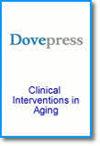环境温度对因大血管闭塞而接受血管内治疗的急性缺血性脑卒中患者的短期影响
IF 3.7
3区 医学
引用次数: 0
摘要
目的:急性缺血性中风(AIS)是导致全球死亡和长期残疾的主要原因。虽然之前的研究已经探讨了中风与当地天气之间的关系,但得出的结果却相互矛盾。我们的目标是研究接受血管内治疗(EVT)的大血管闭塞(LVO)患者的温度与功能预后之间的相关性:本研究共纳入1809名患者。从卒中发生到腹股沟穿刺的温度分为冷组(温度的第10百分位数)、凉组(温度的第10-50百分位数)、暖组(温度的第50-90百分位数)和热组(温度的第90百分位数)。主要疗效结果是 90 天时的改良 Rankin 量表(mRS)评分。安全性结果包括死亡率、症状性颅内出血(sICH)和脑梗塞后并发症:主要疗效结果显示,与冷组相比,暖组患者在 90 天后的功能预后有统计学上的改善(调整后的普通几率比 [OR]:1.386;95% 置信度 [OR]:1.386;95% 置信度 [OR]:1.386):1.386;95% 置信区间 [CI]:1.024- 1.878, P=0.035).次要疗效结果显示,体温与较高的 90 天功能独立率相关(调整后 OR:1.016;95% CI:1.004- 1.029;P=0.009),与寒冷组患者相比,温暖组患者的 90 天功能独立率更高(调整后 OR:1.646;95% CI:1.107- 2.448;P=0.014)。在sICH、90天死亡率和梗死后并发症方面,组间无明显差异:关键词:急性缺血性卒中、环境温度、大血管闭塞、血管内治疗本文章由计算机程序翻译,如有差异,请以英文原文为准。
Short-Term Effect of Ambient Temperature in Acute Ischemic Stroke with Endovascular Treatment Due to Large Vessel Occlusion
Purpose: Acute ischemic stroke (AIS) stands as the primary cause of mortality and extended disability globally. While prior studies have examined the connection between stroke and local weather, they have produced conflicting results. Our goal was to examine the correlation between temperature and functional prognosis in patients with large vessel occlusion (LVO) undergoing endovascular therapy (EVT).
Patients and methods: This study included a total of 1809 patients. Temperatures from stroke onset to groin puncture were categorized into Cold (10th percentile of temperature), Cool (10th– 50th percentile of temperature), Warm (50th– 90th percentile of temperature), and Hot (90th percentile of temperature) groups. The primary efficacy result was the modified Rankin Scale (mRS) score at 90 days. Safety outcomes included mortality, symptomatic intracranial hemorrhage (sICH) and complications after cerebral infarction.
Results: The primary efficacy results demonstrated a statistical enhancement in functional outcomes at 90 days for patients in the Warm group compared to the Cold group (adjusted common odds ratio [OR]: 1.386; 95% confidence interval [CI]: 1.024– 1.878, P=0.035). Secondary efficacy results showed that temperature was associated with a higher rate of 90-day functional independence (adjusted OR: 1.016; 95% CI: 1.004– 1.029; P=0.009), which was higher in the Warm group compared with patients in the Cold group (adjusted OR: 1.646; 95% CI: 1.107– 2.448, P=0.014). There were no significant differences between groups in terms of sICH, 90-day mortality, and post-infarction complications.
Conclusion: Compared with Cold temperature, Warm temperature is associated with better functional outcomes and reduced mortality risk without increasing the risk of sICH.
Keywords: acute ischemic stroke, ambient temperature, large-vessel occlusion, endovascular treatment
Patients and methods: This study included a total of 1809 patients. Temperatures from stroke onset to groin puncture were categorized into Cold (10th percentile of temperature), Cool (10th– 50th percentile of temperature), Warm (50th– 90th percentile of temperature), and Hot (90th percentile of temperature) groups. The primary efficacy result was the modified Rankin Scale (mRS) score at 90 days. Safety outcomes included mortality, symptomatic intracranial hemorrhage (sICH) and complications after cerebral infarction.
Results: The primary efficacy results demonstrated a statistical enhancement in functional outcomes at 90 days for patients in the Warm group compared to the Cold group (adjusted common odds ratio [OR]: 1.386; 95% confidence interval [CI]: 1.024– 1.878, P=0.035). Secondary efficacy results showed that temperature was associated with a higher rate of 90-day functional independence (adjusted OR: 1.016; 95% CI: 1.004– 1.029; P=0.009), which was higher in the Warm group compared with patients in the Cold group (adjusted OR: 1.646; 95% CI: 1.107– 2.448, P=0.014). There were no significant differences between groups in terms of sICH, 90-day mortality, and post-infarction complications.
Conclusion: Compared with Cold temperature, Warm temperature is associated with better functional outcomes and reduced mortality risk without increasing the risk of sICH.
Keywords: acute ischemic stroke, ambient temperature, large-vessel occlusion, endovascular treatment
求助全文
通过发布文献求助,成功后即可免费获取论文全文。
去求助
来源期刊

Clinical Interventions in Aging
GERIATRICS & GERONTOLOGY-
CiteScore
6.20
自引率
2.80%
发文量
193
期刊介绍:
Clinical Interventions in Aging, is an online, peer reviewed, open access journal focusing on concise rapid reporting of original research and reviews in aging. Special attention will be given to papers reporting on actual or potential clinical applications leading to improved prevention or treatment of disease or a greater understanding of pathological processes that result from maladaptive changes in the body associated with aging. This journal is directed at a wide array of scientists, engineers, pharmacists, pharmacologists and clinical specialists wishing to maintain an up to date knowledge of this exciting and emerging field.
 求助内容:
求助内容: 应助结果提醒方式:
应助结果提醒方式:


